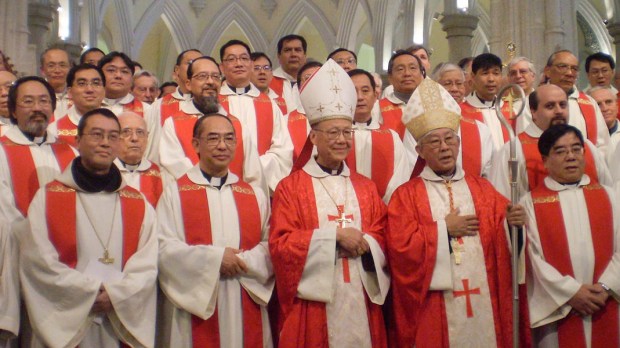Here are five questions to better understand the negotiations.
Is there an agreement in the works?
In terms of Sino-Vatican relations, we must remain very cautious about the effects of any announcement in this regard. But it seems that an agreement is indeed being prepared—on the Holy See’s side, at least. Reuters revealed on February 2 that a framework agreement would have put both parties in agreement especially on the most sensitive point: the appointment of bishops. The final agreement should be finished in a matter of months.
On the Chinese side, the semi-official press was also very enthusiastic in a statement issued four days later, saying that an agreement would take place “sooner or later” and that a rapprochement is inevitable.
What do the opponents say about this agreement?
The foremost opponents are part of the 12 million Chinese Catholics themselves, led by Cardinal Joseph Zen, bishop emeritus of Hong Kong. What is unacceptable for him is that Rome agreed to legitimize bishops who were endorsed and appointed by the Communist regime of Beijing. As of yet, the Vatican had not yet recognized these state-sponsored bishops, and some were even excommunicated for moral reasons. These opponents believe that legitimizing them would amount to denying the sufferings of Christians who have been persecuted for years since Mao Tse-Tung’s Communists seized power in 1949.
The other bone of contention is Taiwan. As a precondition for any agreement, Communist China is demanding that the Holy See break its diplomatic relations with the “other China,” the island of Taiwan, where Mao’s opponents once took refuge. The Vatican is one of 20 countries in the world that has kept official ties, which mainland China does not tolerate. Taiwanese deputies have thus undertaken a trip to Europe to guarantee their relations with the Holy See.
What is at stake for the Catholic Church?
The Church would be able to restore communion with Catholics divided under the persecution. Some opt to support the regime through the so-called Patriotic Association, which itself selects clergy leaders—thereby disobeying the pope. Others—about half—have chosen semi-secrecy. That is, they live under the threat of arrest and their activities are banned. A very restrictive law on religious freedom has just come into force in the Middle Kingdom, evidence of some tension on the matter.
This desire to reunite the Catholics of the “official” Church and those of the “underground” Church is, moreover, what brings together partisans and opponents of an agreement among Catholics.
What does the pope think?
On the return flight from Bangladesh last December, the pope reaffirmed his keen desire to visit China. For him, the negotiations must go “step by step,” with delicacy and patience. In fact, this is not the first time that such an agreement has been mentioned in recent years.
The pontiff also mentioned another type of diplomacy, a cultural one: diplomacy by art. Two joint exhibitions of some 40 works owned by the Vatican Museums and a Chinese cultural institute will be held in 2018, one in Beijing next March, and the other in Rome later in the year. It is a good opportunity to build the still-fragile mutual trust between the two states.

